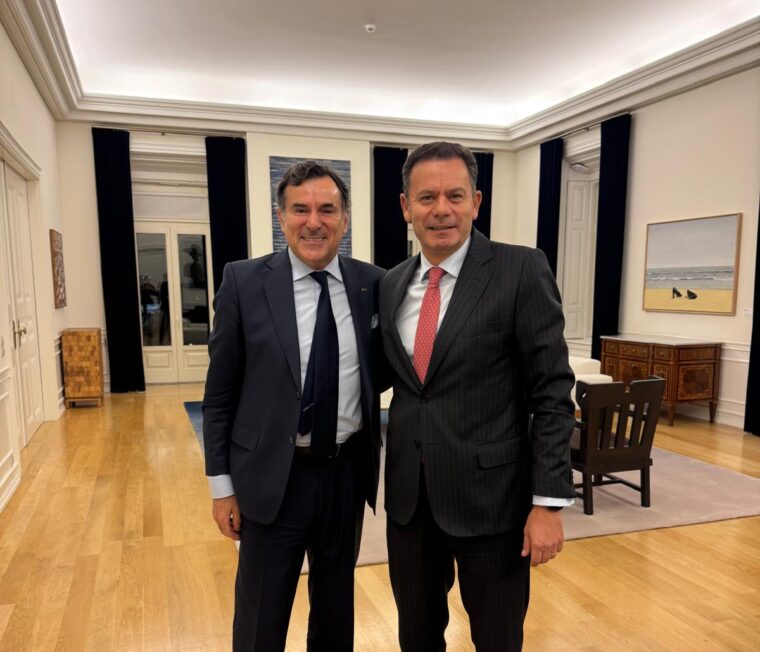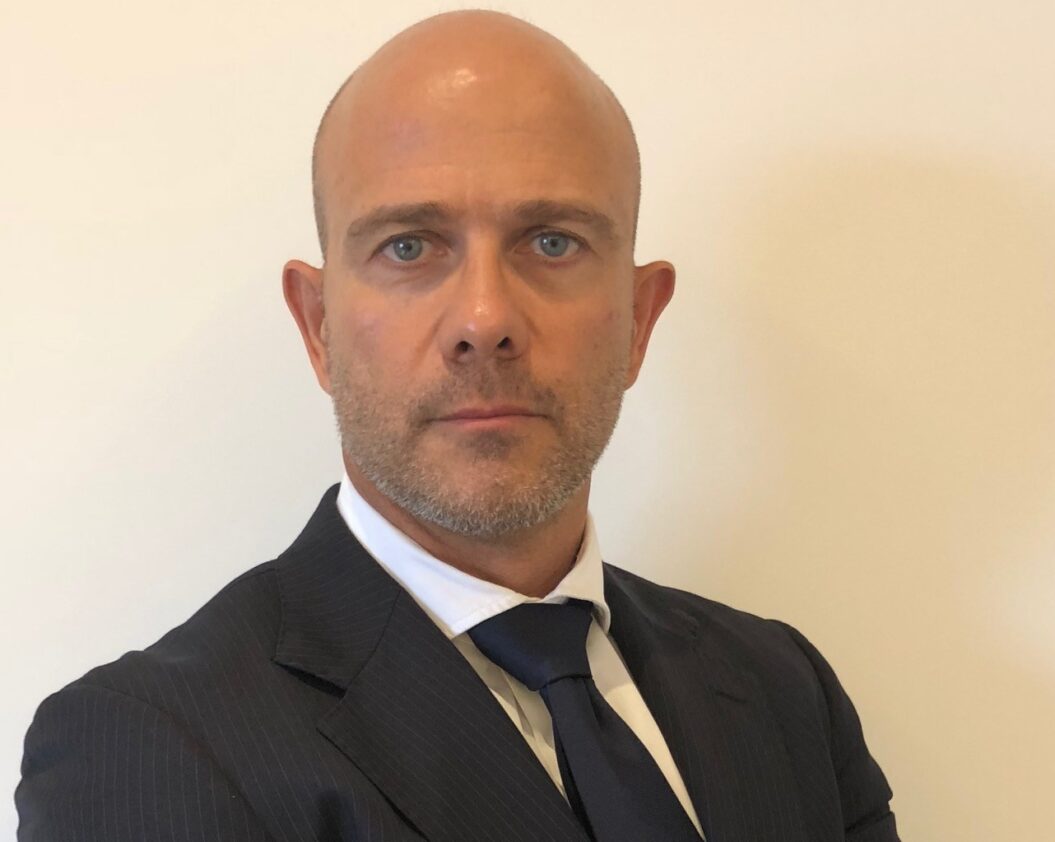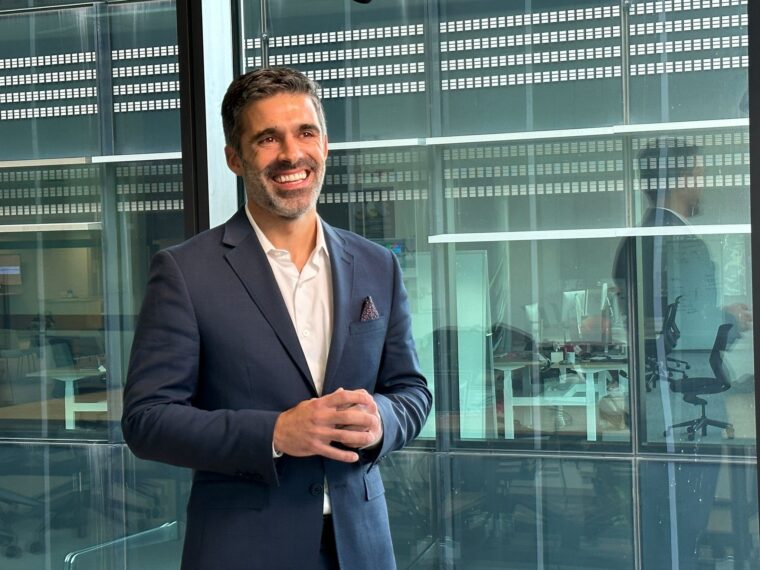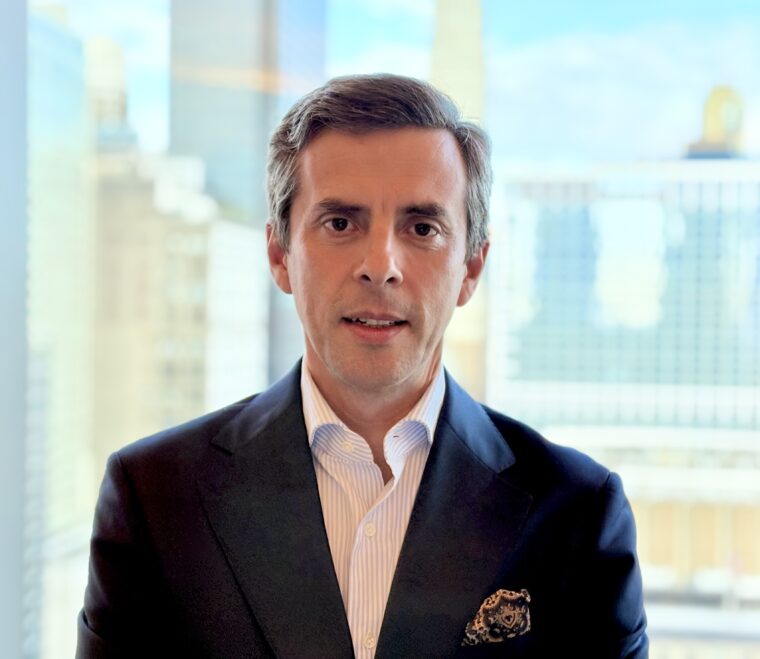As part of the partnership between the Portuguese Diaspora Council and Jornal de Negócios, Alexandre Bernardo, Managing Director and Board Member at Samcrete E&C, and Counselor of the Middle East Regional Hub, was interviewed by Jornal de Negócios. In the interview, Alexandre Bernardo discussed his professional journey and identified competitive opportunities for Portugal, its economy, companies, and entrepreneurs in general.
1 – WHAT LED YOU TO LEAVE PORTUGAL?
My departure from Portugal was motivated by a combination of personal and professional factors. The first opportunity arose with the challenge of launching the Colombian market, where I was based in Bogotá for three years. This pioneering experience not only allowed for the sustained growth of the business across different regions of the country but also facilitated the expansion of operations to Aruba, which was also under my responsibility. This period marked the beginning of a broader international career, during which I also joined the executive board of Mota-Engil for Latin America, with strategic responsibility over operations in several countries.
On a personal level, the decision to move abroad also took the family perspective into account. As a couple, we believed that providing our four daughters with an international experience — with exposure to different cultures, languages, and social realities — would be highly enriching for their development. We believe that this global experience has given them a broader worldview, greater empathy, and adaptability, qualities that are essential for the future.
2 – WHAT ADVANTAGES OR DISADVANTAGES HAS THE FACT THAT YOU ARE PORTUGUESE BROUGHT YOU?
Being Portuguese has allowed me to be well received in diverse contexts, thanks to the positive image Portugal enjoys as a diplomatic, open, and trustworthy country. Our ability to adapt, show empathy, and build cultural bridges is a major advantage, especially in multicultural environments where human relationships are key. Portuguese professionals are widely recognized for their flexibility, work ethic, and capacity to operate in complex contexts.
However, in some markets, Portugal’s political and economic influence may not be as visible as that of other European nations, which requires additional effort to assert our skills, project our value, and position our projects competitively. It is precisely in this challenge that an opportunity lies: to act as discreet yet effective ambassadors of Portuguese excellence.
3- WHAT OBSTACLES DID YOU HAVE TO OVERCOME AND HOW DID YOU DO IT?
Throughout my career, I have had to face obstacles such as language barriers, profound cultural differences, highly unstable political and operational environments, as well as local resistance to foreign management models. Overcoming these challenges required active listening, cultural integration, investment in local teams, and building trust through tangible results and long-term commitment. I believe that consistency, respect for the context, and adaptability were key factors. Moreover, the support of my family during relocations was essential for maintaining emotional stability and professional focus
4 – WHAT DO YOU MOST ADMIRE ABOUT THE COUNTRY YOU ARE CURRENTLY IN?
Egypt as a country, and Africa as a continent, present incredible opportunities, especially in the infrastructure sector, where there is a clear focus on both public and private investment in large-scale projects. I admire the resilience of their people, the ability to improvise solutions with the resources available, and the way they can rapidly mobilize teams and equipment to deliver major projects. There is also a growing openness to international collaboration, with a strong willingness to learn, invest, and diversify strategic partnerships.
In the case of Egypt, beyond the professional context, I also admire its cultural richness, millenary history, and the central role that family life plays in Egyptian society. Living in different countries such as Colombia, Peru, Ivory Coast, and now Egypt, with my family always by my side, has given us a unique multicultural perspective. These contexts require constant adaptability, deep respect for local realities, and enormous emotional resilience. The challenges were many — from different education systems to language barriers and marked cultural differences — but it was precisely these challenges that enriched us the most, both as human beings and as a family.
5 – WHAT DO YOU ADMIRE MOST ABOUT THE COMPANY / ORGANIZATION YOU ARE IN?
At Samcrete, I admire the combination of tradition and innovation. It is a family-owned company with deep roots in the Egyptian economy, which has managed to uphold strong values of integrity, close ties with local communities, and social responsibility. At the same time, it demonstrates remarkable ambition in the way it embraces innovation, diversifies its business areas, and invests in strategic international partnerships.
The management culture is highly focused on efficiency, results, and the creation of long-term value. This ability to reconcile legacy with a forward-looking vision allows the company to stand out in a competitive and constantly evolving market. Being part of this environment represents a daily challenge, but also a continuous opportunity for personal and professional growth.
6 – WHAT RECOMMENDATIONS DO YOU HAVE FOR PORTUGAL, ITS ENTREPRENEURS AND MANAGERS?
Portugal has enormous potential but needs to strengthen its international ambition. It is essential to promote internationalization with concrete mechanisms such as export support, access to financing, and incentives for establishing a physical presence in target markets. Investment in innovation, a greater willingness to take strategic risks, and valuing young talent are also critical. The State should act as a facilitator, reducing bureaucracy and streamlining processes.
Internationalization is not only healthy but highly recommended for all companies that aspire to achieve sustainable growth and expand their impact. Across the various countries where I have lived and worked, I have found real opportunities in multiple sectors, available to those who understand local dynamics and adopt a structured, context-sensitive approach.
It is important to master the right tools for the successful implementation of projects in these markets and to be prepared for integrated growth. In this respect, the experience I have accumulated over the years in emerging markets, working with different business models and cultural frameworks, provides me with a strong foundation to support other organizations wishing to follow this path with confidence and insight.
7 – IN WHICH SECTORS OF THE COUNTRY WHERE YOU LIVE CAN PORTUGUESE COMPANIES FIND CUSTOMERS?
Africa and Egypt, within my areas of expertise, present highly relevant opportunities in sectors such as infrastructure construction and rehabilitation, renewable energy, technology applied to education and healthcare, waste management, and environmental solutions. There is a growing demand for efficient, innovative, and locally adapted solutions — areas where Portuguese companies can stand out thanks to their quality, technical expertise, and operational flexibility.
8 – IN WHICH SECTORS IN PORTUGAL COULD COMPANIES IN THE COUNTRY WHERE YOU ARE WANT TO INVEST?
Sustainable tourism, precision agriculture, the high value-added food industry, real estate, and clean energy are among the areas of potential interest. Portugal is regarded as a safe destination, offering stability, skilled talent, and privileged access to the European market. The country’s strong focus on sustainability, innovation, and digitalization further enhances its attractiveness for investors seeking new geographies for risk diversification and capital appreciation.
9 – WHAT IS THE COMPETITIVE ADVANTAGE OF THE COUNTRY YOU ARE IN THAT COULD BE REPLICATED IN PORTUGAL?
Once a project is deemed a priority, the speed of decision-making and administrative agility greatly facilitate progress, particularly when projects are public or publicly funded. In such cases, bureaucracy, though present, is often bypassed through clear executive mechanisms, allowing for swift advancement. There is a predisposition for action that, at times, contrasts with the excessive hesitation and formalism seen in Portugal.
Portugal would benefit significantly from greater speed and pragmatism, especially in strategic areas such as infrastructure, housing, technological innovation, and the energy transition. It is crucial to develop more agile decision-making mechanisms, stronger coordination between public and private entities, and a culture committed to execution. Creating environments that foster trust and collaboration—rather than control and mistrust—would be decisive in accelerating the implementation of public policies and large-scale projects.
10 – ARE YOU THINKING OF RETURNING TO PORTUGAL? WHY?
Portugal is always present, both personally and professionally. Returning is a real possibility, not only because of my sense of belonging and family roots, but also due to my desire to contribute with the knowledge and experience gained in challenging geographies. I believe it is possible to generate positive impact in Portugal by supporting companies in their internationalization, advising young talent, and building bridges between Portugal and external markets.
Even throughout all these years abroad, I have always maintained a deep connection to the country—through my origins, my family, and my appreciation for what is uniquely ours. For me, Portugal is unmatched in terms of beauty, hospitality, quality of life, and safety.
I also make it a priority to ensure that my four daughters never lose their connection with the country. We have always kept a regular travel schedule to Portugal, being present for key family moments and every school holiday. This emotional bond with the country has always been, and continues to be, a priority.







